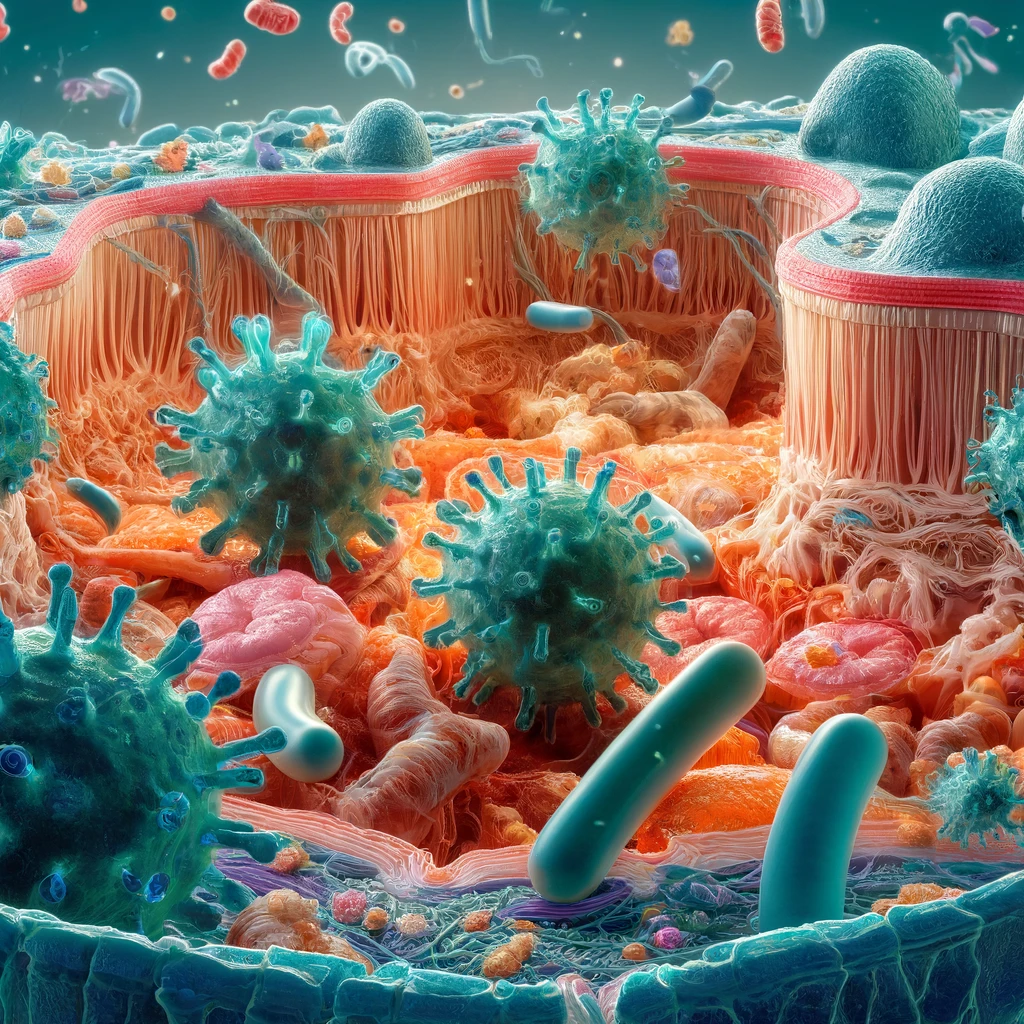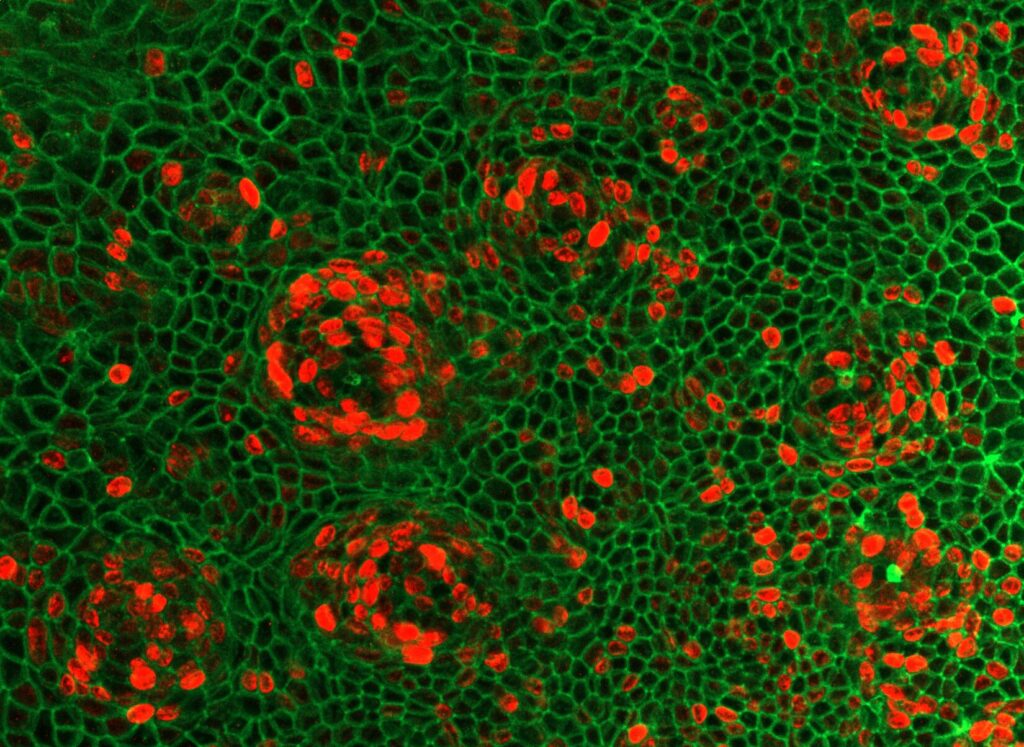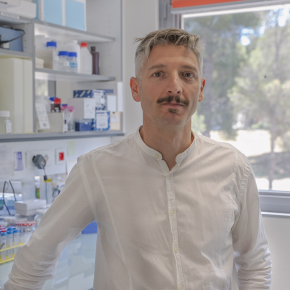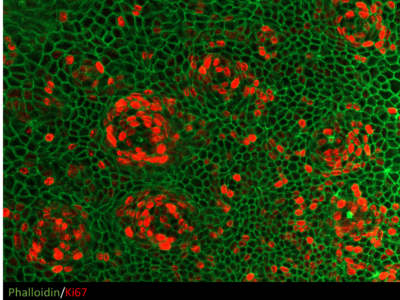
Members











About
Team leader: Dr Achille Broggi
The intestine: a key organ for our health
The intestine isn't just a digestive organ: it's also a key player in our defense against microbes. It's lined with an epithelium—a thin layer of cells—that acts as a protective barrier. This epithelium is constantly exposed to billions of microbes: some are beneficial (the microbiota), others can be dangerous (pathogens). To stay healthy, the intestine must maintain a delicate balance between defense, repair And tolerance.
When this balance is disrupted, the barrier becomes fragile, which promotes infections and can lead to chronic diseases such as IBD (chronic inflammatory bowel diseases, e.g. Crohn's disease).
Our team seeks to understand how immune cells, epithelial cells and intestinal microbes communicate with each other to maintain this balance.
Axis 1: Type III interferons – Protection that can sometimes become harmful
Responsible: Dr Achille Broggi
Type III interferons (IFN-λ) are molecules produced during infections, especially viral ones. They help defend the intestine by protecting cells and limiting inflammation.
But if these molecules are produced for too long or at the wrong time (for example in response to an unbalanced microbiota), they can block repair processes and maintain inflammation.
We are studying how these interferons work, to better understand when and how they help or harm to gut health, and how we might regulate to avoid negative effects.

Axis 2: Malnutrition and intestinal immunity
Responsible: Dr Julie Tomas, Dr. Achille Broggi
Malnutrition, especially in children, makes the gut more fragile. It weakens the immune system, alters the microbiota, and reduces the effectiveness of vaccines.
We seek to understand How malnutrition disrupts intestinal defenses, and how we could restore them.
We are testing solutions such as using probiotics or of beneficial molecules to strengthen immunity and improve the effectiveness of nutritional treatments, particularly in vulnerable children.

Axis 3: Vitamin B5 and intestinal repair
Responsible: Prof. Franck Galland, Dr.Achille Broggi
To repair themselves, the cells of the intestine need energy. This energy is produced by structures called mitochondria, a bit like the “power plants” of cells.
We discovered that an enzyme called Vnn1, produced in the epithelium, helps transform nutrients into vitamin B5, a key element for the proper functioning of mitochondria.
By boosting this metabolic pathway, Vnn1 improves the ability of the intestinal barrier to repair itself.
Our work aims to better understand this interaction between metabolism, microbiota and repair, to propose new therapeutic approaches.

These three axes — antiviral immunity, nutrition And cellular metabolism — are complementary. Together, they allow us to better understand how to maintain a healthy intestine, capable of defending and repairing itself effectively.
Our research has concrete applications for the treatment of infections, of the inflammatory diseases of the intestine and the long-term effects of malnutrition, especially in children.
News

The CNRS research fellow at the Marseille-Luminy Immunology Center has been rewarded for his work on interferons and […]

A team of researchers from the Marseille-Luminy Immunology Center (CIML), led by Dr. Achille Broggi, in collaboration with the […]
Projects
Project: INTERMUCOSAL This project explores the role of an immune system molecule called type III interferon (IFN-λ). This […]



Project: ICARO Current acellular vaccines are mostly effective against extracellular pathogens, but fail to induce a response […]




